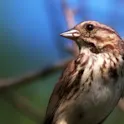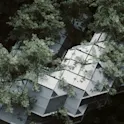
Featured news
07 Sep 2023
What makes a Grand Slam champion? Research finds three key guidelines for tennis coaches
by Dr Dario Novak, University of Zagreb Image courtesy of Dr Novak: Dario Novak and Marin Čilić, 2020 Olympic silver medalist To provide adequate support to young athletes, it is important to understand their development path. Over the years, researchers have recognized the significance of tracking all processes aimed at optimizing athletes’ progress and overall success. In a new study by Mario Oršolić, Dr Petar Barbaros, and Dr Dario Novak, 30 tennis players at different levels of success were interviewed, including 10 Grand Slam winners, to understand how they got into the sport and what drove their success. The research, published in Frontiers in Sports and Active Living, sought to deepen the understanding of specialization in tennis by exploring the experiences of tennis players at different levels of success. By analyzing their stories, the researchers aimed to contribute to a wider knowledge on the development of tennis players, as well as providing valuable insight for individual sports careers. They condensed their findings down to the following guidelines for coaches and players: It is important that the initial introduction into tennis for younger children is aimed at stimulating positive feelings and love for the sport; Specialization (targeted and more intensive training) […]













